Cultural rhythms blur echoes of gunshots in Gulu
The festival, which started on Monday, saw a group of Germans flying to Uganda to celebrate intercultural exchange.
The Cultural themed event offered a taste of different dance moves. (Photos by Julius Luwemba and Jackson Kitara)
________________
Electrifying drumbeats punctuated by the sounds of agwara (wooden trumpet), adungu (bow harp) and the fiddle commanded every dust-raising dance move of Otole, Bwola and Laraka-raka at Kaunda grounds in Gulu city, northern Uganda.
The city that was for long, used to the sound of gunshots, is now listed among the most clean, and vibrant towns. 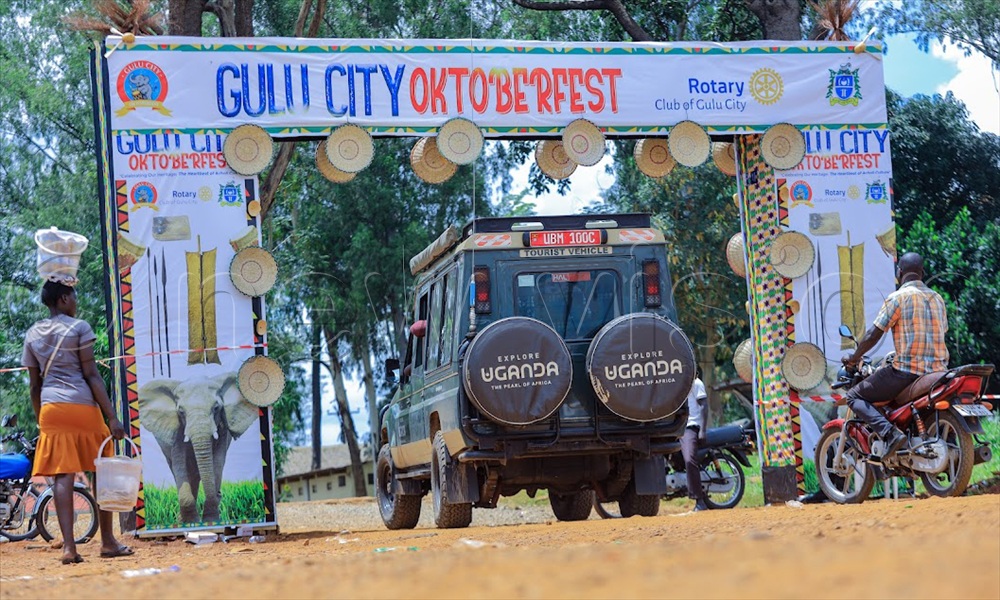
The 10-day-long jovial mood in the area that, for the past years, was accustomed to sounds of gunshots, is a celebration of festivities dubbed 'Oktoberfest,' which draws its origin in Munich, Germany.
The Gulu City Oktoberfest 2025 draws inspiration from the historic Oktoberfest in Germany, reimagined within Uganda’s cultural and tourism context.
Exhibiting different cultural attire and musical instruments on Gulu city streets. 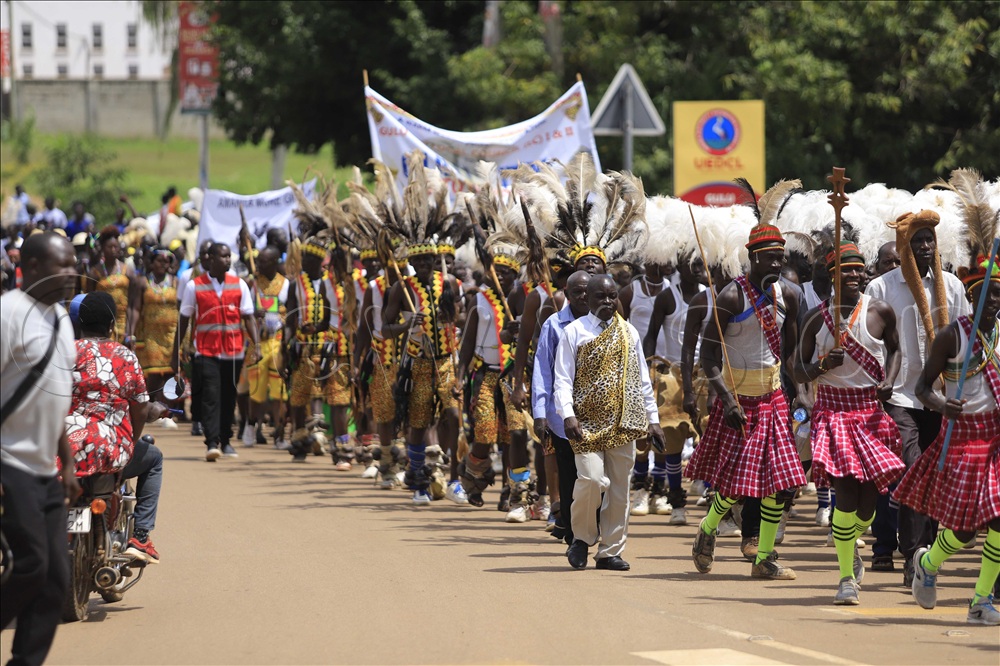
The festival, which started on Monday, saw a group of Germans flying to Uganda to celebrate intercultural exchange. The northern city, rich in heritage, resilience and vibrancy, offered a perfect stage for the maiden event in Uganda.
Once devastated by wars, retrogression, disintegration, among other insurgencies, Gulu city currently boasts of normalcy, clean streets and a vibrant nightlife. There is no better city to host Oktoberfest celebrations.
Gulu city mayor, Alfred Okwonga, Dr. Wolfgang Wiedmann, Uganda representative to the German honorary consul who represented the Mayor of Munich city and Jolly Laker enjoying Kwete during Oktoberfest. 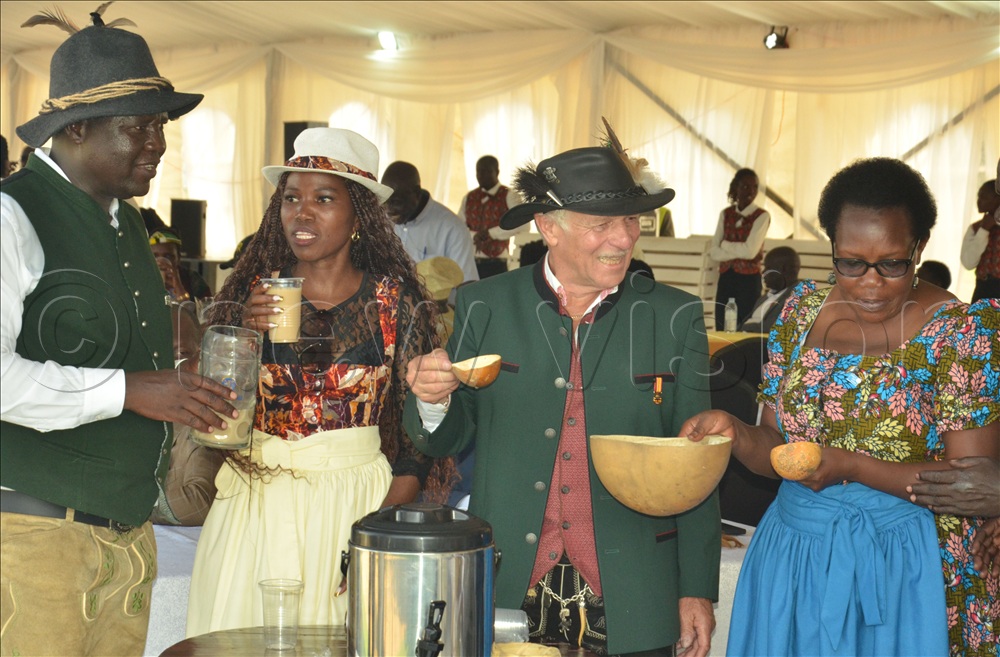
The annual festival in Munich city originated on October 12, 1810, in celebration of the marriage of the crown prince of Bavaria, who later became King Louis I, to Princess Therese von Sachsen-Hildburghausen.
Meanwhile, as early as the fifteenth century, a beer-drinking festival would be held in September and run until the kegs were empty in early October.
"So, the combination of the wedding celebration and the tradition of having to finish the remaining beer before the new harvest, combined to create the Oktoberfest that we know today," explained Dr Wolfgang Wieldmann, Uganda's representative to the German honorary consul, who also represented the mayor of Munich city.
Officials from Germany and Gulu leaders during the Oktoberfest celebrations.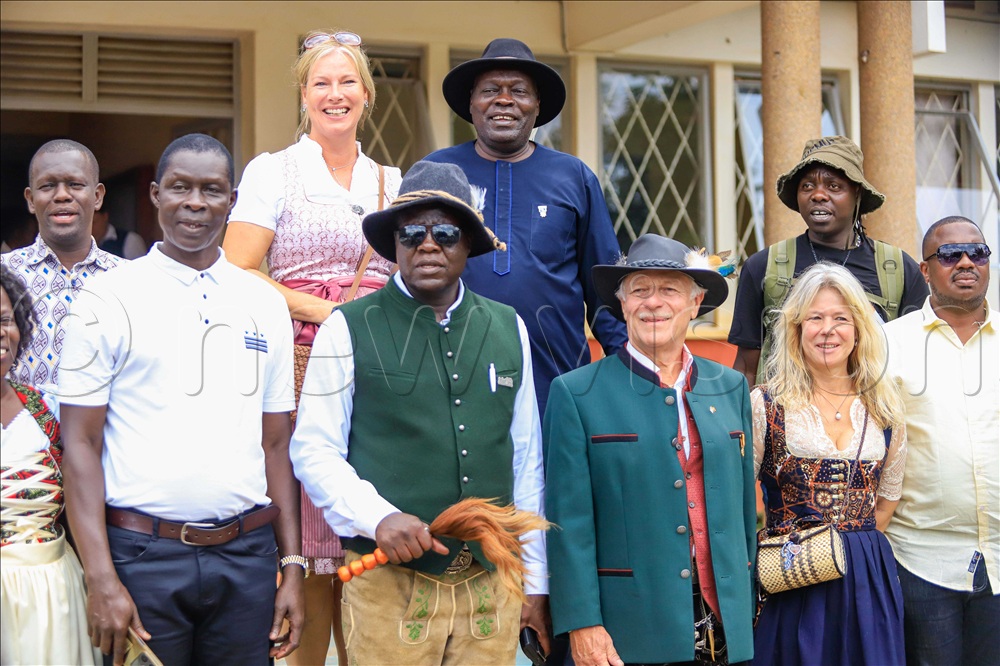
Not a single day saw a climax to the enjoyment in Gulu city. Days and nights were only separated by the sun and moon, but the vibe among revellers remained unmatchingly the same, all the time.
"It's amazing that Uganda is organising this kind of festival for the first time, but it turns out to be so big and graced by thousands of people," Jann Engel from Germany expressed.
The cultural-themed event featured German-style beer, traditional Acholi foods, live music and cultural performances.
The Gulu Oktoberfest was a fusion of cultures from different regions of Uganda that left the Germans impressed.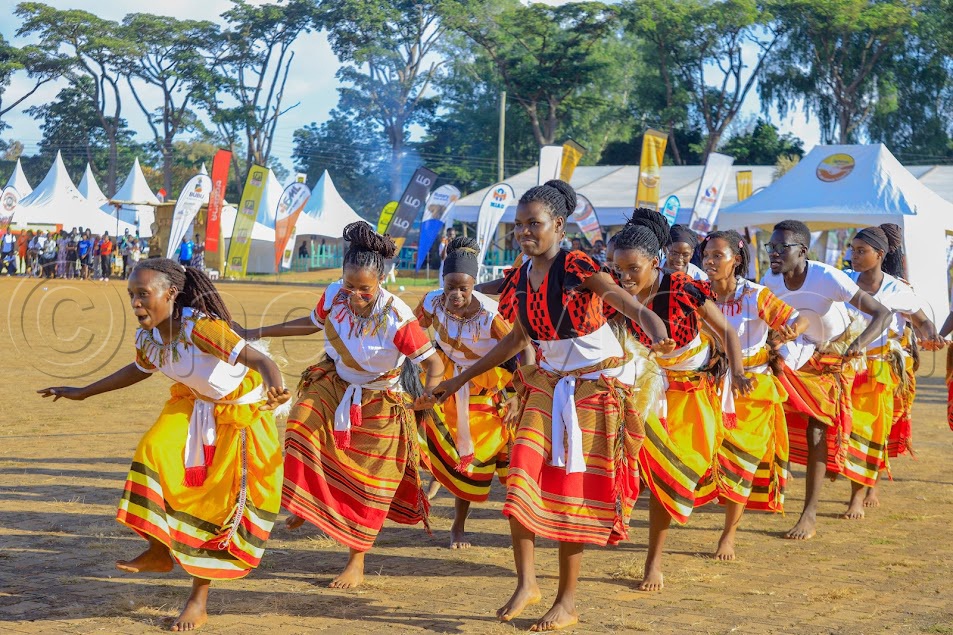
David Onen Acana II, the Paramount of Acholi, encouraged his subjects to recover from the traumas of past insurgencies, especially the war by the Lord's Resistance Army.
"It is time for the people of Acholi to get up and use our rich culture to move forward. Use it as a strong pillar for recovery and revival," the cultural leader rallied.
Alfred Okwonga, the mayor of Gulu city, said that when Oktoberfest is organised every year, it will symbolise Gulu's transformation from a war-affected region of northern Uganda to a vibrant hub of trade and development.
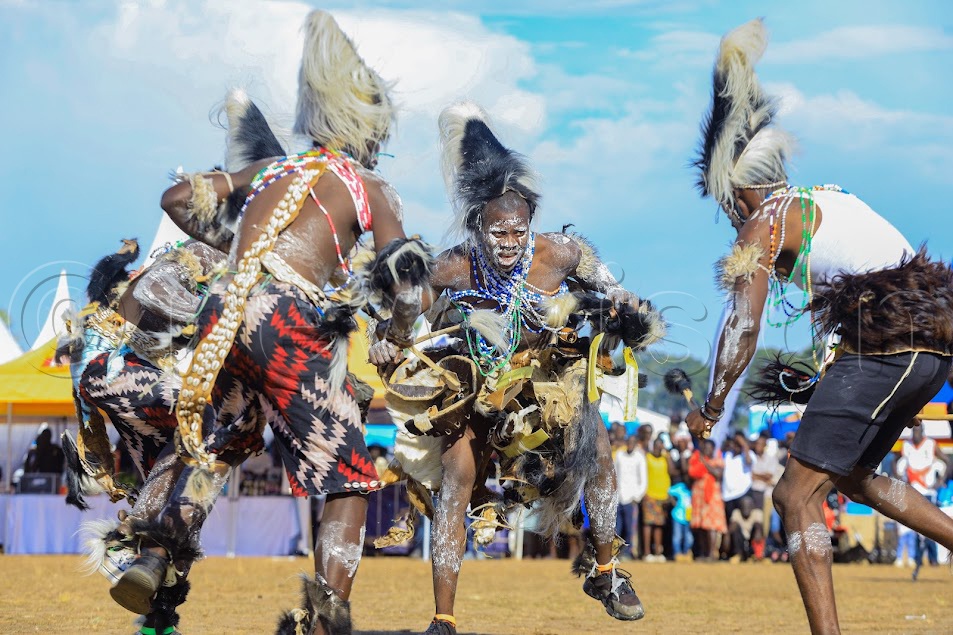
Over 200 enterprises exhibited their businesses at Kaunda grounds during the festival.
Juliana Kagwa, the chief executive officer for Uganda Tourism Board (UTB), said the Oktoberfest, when adopted annually, will not only boost tourism in Northern Uganda, but also empower local businesses.
"As witnessed, the festival has strengthened community engagement through sports, cultural activities and shared celebrations. Uganda also envisages strengthened ties with Germany through this annual Oktoberfest celebration," Kagwa expressed.
Quoting the tourism performance report, Dr. Simlicious Gessa, the UTB spokesperson said, Uganda's tourism sector continued its strong recovery in 2024, with international arrivals rising by 7.7% from 1,274,210 in 2023 to 1,371,895.
He noted that Germany remains in the 8th position among the source markets with 4,223 tourists that came to Uganda as of June 2025, making a total number of 39,596 tourists from Europe altogether.